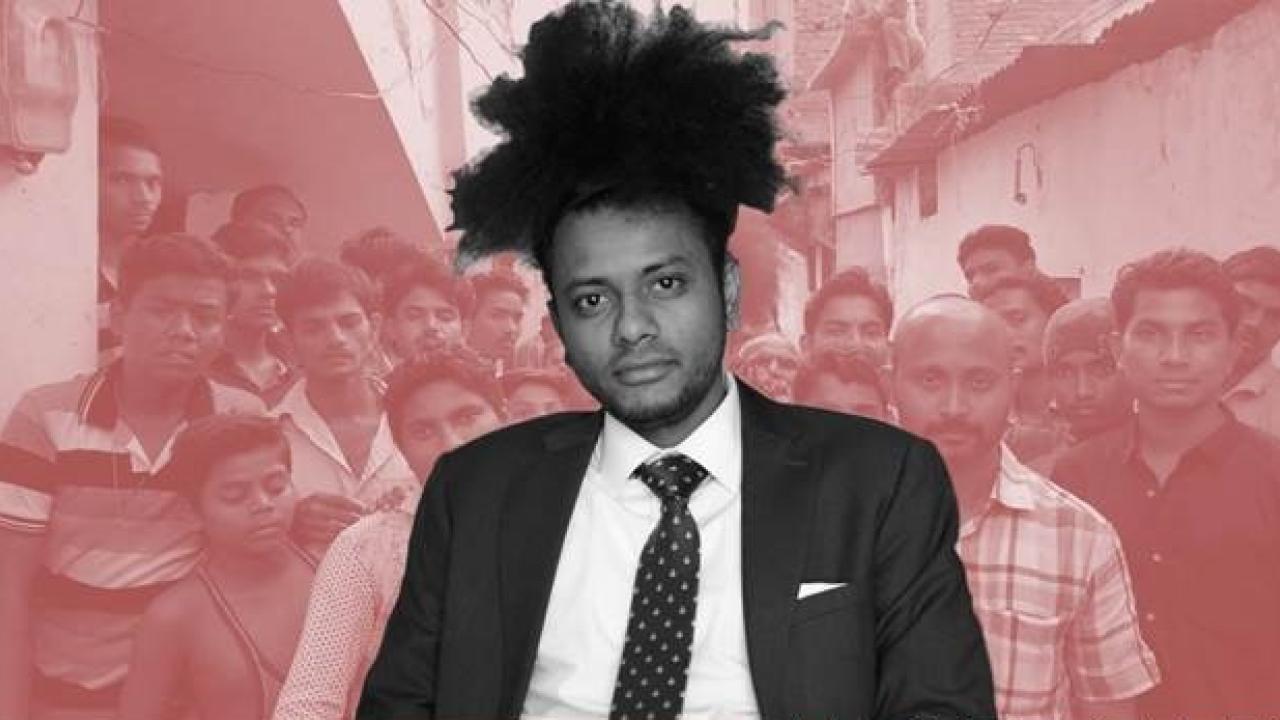
Caste Still Matters: Dr. Suraj Yengde Addresses Casteism in the Here and Now
UC Davis’ Middle East/South Asia (ME/SA) Studies Program welcomed Dr. Suraj Yengde for a lecture and conversation, “Caste Matters,” as part of the South Asia Without Borders initiative. Dr. Yengde’s talk demonstrated how his academic intervention, as both a scholar and activist, is a literal intervention in casteism: by paying attention to who is affected by casteism, he addresses possibilities to undo this subordination.
Dr. Yengde, who has written widely on, caste, race, ethnicity studies, and inter-regional labor migration in the Global South, is a postdoctoral scholar at the Initiative for Institutional Anti-racism and Accountability, Shorenstein Center on Media, Politics and Public Policy at the Harvard Kennedy School. His bestselling book, Caste Matters, addresses casteism and caste consciousness.
After brief and glowing introductions from ME/SA director and professor of history Sudipta Sen and ME/SA assistant adjunct professor Nicole Ranganth, Dr. Yengde invited the audience to perform a news search for the key term “Dalit” to show the ongoing stereotyping, subordination, and violence Dalits face in and beyond India.
“If we talk about the issue of caste equals untouchability,” he argued, “it is not a thing of the past. It is a thing of right now.” Caste categorization and resulting horrible treatment, Dr. Yengde emphasized, is present across all major religions in India, and is facilitated by algorithmic intelligence. Although the notion of untouchability “remains stagnant”—resulting in such severe treatment as the destruction of homes, sexual violence, and a lack of employment options and social mobility, to name just a few—is still “very present” in India and its diaspora.
Dr. Yengde’s talk addressed both the scope and the depth of casteism. He pointed out the ways that caste stratification relies on romantic ideas of India and justified racialization and sexism. While people argue that caste didn’t exist before British colonialism, this premise is completely wrong, and is premised much more on the desire of powerful upper-caste members to absolve themselves of responsibility for the suffering of low-caste members than on any kind of historical fact.
A similar—and similarly false—argument is that Dalits are responsible for maintaining the class system, which puts the onus on the oppressed to free themselves. This is of course, not to say that European colonization was not wrong, but rather to address that caste was also a problem prior to colonization. Dr. Yengde also noted that Hinduism is not an organized religion, that India has eight major religions with various sub-sects in each small region, and that, in many circumstances, people have corrupted spiritual scripts to include and maintain caste. He also addressed the role of the subordination of women in maintaining caste: in order to regulate caste, he maintained, it is necessary to regulate reproduction.
Together, these major factors, as well as a variety of others beyond the scope of this article, give an overview of the origins and effects of caste in India and its diaspora. This includes who actually suffers as a result of casteism; to this end, Dr. Yengde reasoned that “Poverty is a euphemism to caste-based differentiation.” The only way, he continued, to eliminate racialized caste-based subordination is to take anti-casteist action. Actions such as considering romantic ideas of India from subordinate perspectives and calling for Hindu temples to make statements around the unacceptability of casteism could mitigate what Dr. Yengde explained as the spiritual starvation that people experience in India “because nothing is helping them escape their miseries caused by oppressive Brahminian system.”
UC Davis’ South Asia Without Borders Initiative in the ME/SA Program continues to host a variety of engaging programming. Past initiatives in the highly interdisciplinary program include the Mellon “Reimagining Indian Ocean Worlds” initiative and the Pioneering Punjabis Digital Archive. Dr. Yengde’s visit to UC Davis was supported both by the Punjabi American Heritage Society based in nearby Yuba City, California, as well as the UC Davis Sikh Cultural Association.
